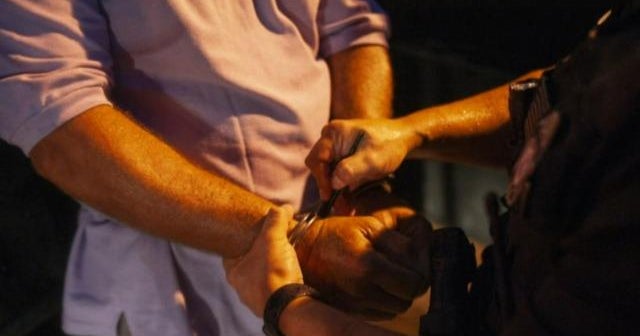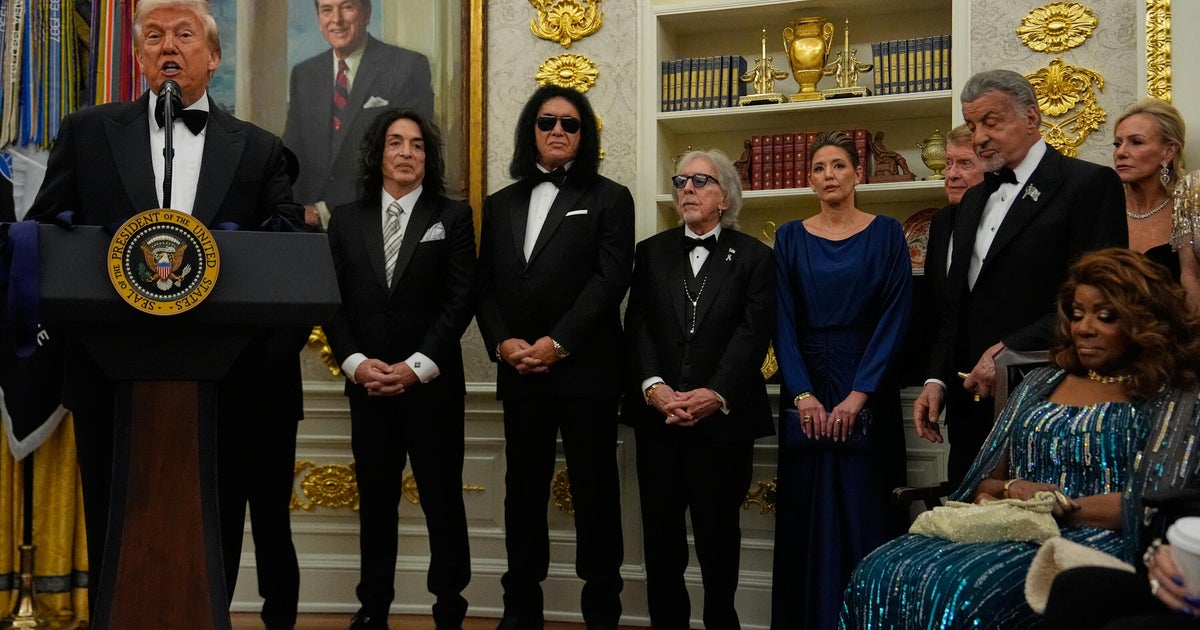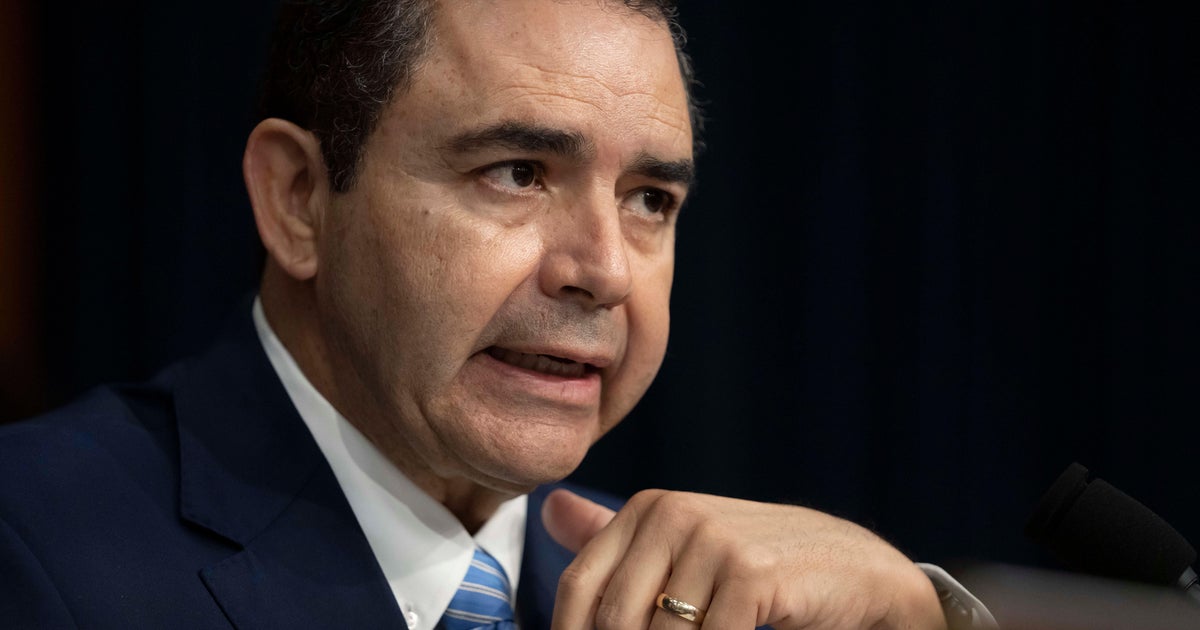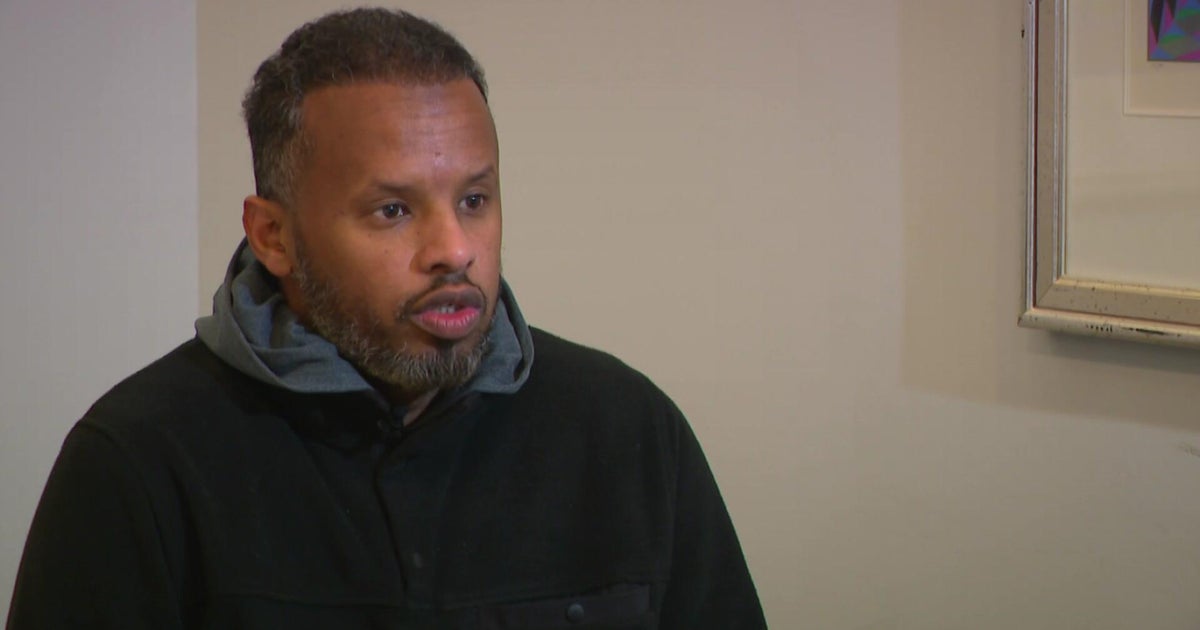President Trump References Antwon Rose In Speech Before Signing Executive Order On Police Practices
PITTSBURGH (AP/KDKA) -- Following weeks of national protests since the death of George Floyd, President Donald Trump signed an executive order on policing Tuesday that would encourage better police practices and establish a database to keep track of officers with a history of excessive use-of-force complaints.
In Rose Garden remarks, Trump stressed the need for higher standards and commiserated with mourning families, even as he hailed the vast majority of officers as selfless public servants and held his law-and-order line, while criticizing Democrats.
"Reducing crime and raising standards are not opposite goals," he said before signing the order flanked by police.
WATCH NOW: Pres. Trump signs executive order on policing https://t.co/HkDRQesqzb pic.twitter.com/fKniiC0IEf
— CBS News (@CBSNews) June 16, 2020
Trump's remarks included the name of Antwon Rose, who was shot and killed by an East Pittsburgh Police officer.
"I've just concluded a meeting with incredible families that have been through so much," President Trump said, mentioning the family of Antwon Rose by name.
"On the use of force and de-escalation training," said Trump. "For example -- many believe that proper training might have prevented the tragic deaths of Antwon Rose and Botham Jean."
Antwon Rose II was shot and killed by East Pittsburgh police officer Michael Rosfeld during a traffic stop in June of 2018.
Trump said he met with a number of families touched by police violence prior to the announcement, including Rose's family, Jean's family, the family of Ahmaud Arbery and others.
"To all the families, I want you to know that all Americans mourn by your side, your loved ones will not have died in vain. We are one nation, we grieve together, we heal together. I can never imagine your pain or the depth of your anguish. But I can promise to fight for justice for all of our people and I gave that commitment to all of those families today," he said.
However, Rose's mother, Michelle Kenney, responded on Facebook shortly after Trump's speech, saying while she is in Washington DC meeting with some senators, she did not meet with Trump.
In her post, she says in all capital letters, "I will not have a conversation with anyone who disrespects us as individuals!!!! I will not have a conversation with someone that clearly will never have any empathy!!! I wont be part of any media ploys this is not a photo opt for me: it's my life and the lives of my daughter, grand daughters, my family and our friends. I cant stand the lies!!!"
Trump and the GOP have been rushing to respond to the mass demonstrations against police brutality and racial prejudice that have raged for weeks across the country in response to the deaths of Floyd and other black Americans. It's a sudden shift for the Republican Party — and one Democrats are watching warily — that shows how quickly the protests have changed the political conversation and pressured Washington to act.
But Trump, throughout the crisis, has continued to emphasize his support for law enforcement and even on Tuesday railed against those who committed violence during the largely peaceful protests.
Trump's executive order would establish a database that tracks police officers with excessive use of force complaints in their records. And it would give police departments a financial incentive to adopt best practices and encourage co-responder programs, in which social workers join police when they respond to nonviolent calls involving mental health, addiction and homeless issues.
Trump said that, under a new credentialing process, chokeholds will be banned "except if an officer's life is at risk." Chokeholds are already largely banned in police departments nationwide.
Trump framed his plan as an alternative to the "defund the police" movement that has emerged from the protests and which he slammed as "radical and dangerous."
Pres. Trump: "I strongly oppose the radical and dangerous efforts to...dismantle and dissolve our police departments... Reducing crime and raising standards are not opposite goals" https://t.co/F4qtB2GBbR pic.twitter.com/RvBsdd6OGF
— CBS News (@CBSNews) June 16, 2020
"Americans know the truth: Without police there is chaos. Without law there is anarchy and without safety there is catastrophe," he said.
Trump's audience included police officials and members of Congress, and came after he met at the White House with the families of men and women who have been killed in interactions with police.
"To all of the hurting families, I want you to know that all Americans mourn by your side," Trump said. "Your loved ones will not have died in vain."
Yet Trump made no mention of systemic racism in his comments.
One of those members of Congress in attendance in the Rose Garden was Republican Rep. Guy Reschenthaler of Pennsylvania. In a statement, Reschenthaler says he applauds Trump's commitment to police.
The full statement reads:
"With today's executive order, President Trump has again demonstrated his commitment to safety and justice for all Americans. This order will empower the hardworking law enforcement officers who put their lives on the line every day, while ensuring we hold officers who abuse their position accountable. Through the promotion of best policing practices and increased transparency, we can foster strong bonds between police officers and the communities they serve and protect.
"I applaud President Trump for standing against radical, far-left calls to defund the police, which would endanger Americans and lead to chaos and lawlessness in our communities. In stark contrast, his executive order focuses on solving problems and bringing our nation together. Now it is time for Congress to follow his example and pass real, bipartisan reform to confront this challenge."
However, Democratic Rep. Mike Doyle of Pennsylvania says the president's executive order falls short in its reforms.
"It's time to rethink policing in this country. President Trumps' executive order falls far short of bringing about the much-needed reforms and accountability we need to stop police brutality.
"Our system is broken, and it has to be fixed. We must move forward with the Justice In Policing Act to reform policing through banning racial profiling, restricting excessive use of force, and ending the militarization of our police departments.
"We need to enact significant reforms in order to end systemic racism in law enforcement. If President Trump and Republicans in Congress want to save lives, they must take another step forward by supporting the Justice in Policing Act."
The Rose Garden announcement comes as Senate Republicans are preparing their own package of policing changes. Sen. Tim Scott of South Carolina, the sole African American Republican in the Senate, has been crafting the GOP legislative package, which will include new restrictions on police chokeholds and greater use of police body cameras, among other provisions.
Senate Majority Leader Mitch McConnell, R-Ky., declared that Republicans are developing "a serious proposal to reform law enforcement."
The Senate Judiciary Committee was to conduct a hearing Tuesday afternoon on "Police Use of Force and Community Relations," drawing testimony from leading civil rights and law enforcement leaders.
"Now is the time to reimagine a more fair and just society in which all people are safe," Vanita Gupta, president and CEO of The Leadership Conference on Civil and Human Rights, was to tell senators, according to advance testimony obtained by The Associated Press.
The nationwide outcry "is anything but a reaction to one isolated incident or the misconduct of a few 'bad apples,'" Gupta says. "The outcry is a response to the other horrific killings of black people by police."
While the emerging GOP package isn't as extensive as sweeping Democratic proposals, which are headed for a House vote next week, it includes perhaps the most far-reaching proposed changes to policing procedures from the party long aligned with a "law and order" approach.
Scott, who said he spoke with Trump about the legislation over the weekend, warned Monday that delaying voting until later this summer would be a "bad decision."
The weekend shooting death of Rayshard Brooks by a white officer in Atlanta led to a renewed public outcry, more street protests and the police chief's resignation.
Senate Democratic leader Chuck Schumer of New York is among those urging Republicans not to settle for minor changes.
"Now is the time to seek bold and broad-scale change," Schumer said Monday.
With the political debate fluid, it is unclear whether the parties will be able to find common ground. The proposals emerging from Democrats and Republicans share many similar provisions but take different approaches to address some of the issues. Neither bill goes as far as some activists want in their push to "defund the police" by fully revamping departments.
Central to the Republican package would be the creation of the national database to improve transparency so officers cannot transfer from one department to another without public oversight of their records. The Democrats have a similar provision.
Yet the Republican bill does not go as far as the Democrats do on the issue of eliminating qualified immunity, which would allow those injured by law enforcement personnel to sue for damages. The White House has said that is a step too far. As an alternative, Scott has suggested a "decertification" process for officers involved in misconduct.
One large police union, the influential Fraternal Order of Police, said in a statement it is working with Congress and the White House on the proposals, having provided "feedback" on the Democratic bill and "substantial input" on the emerging GOP package.
(TM and © Copyright 2020 CBS Broadcasting Inc. All Rights Reserved. This material may not be published, broadcast, rewritten, or redistributed. The Associated Press contributed to this report.)







